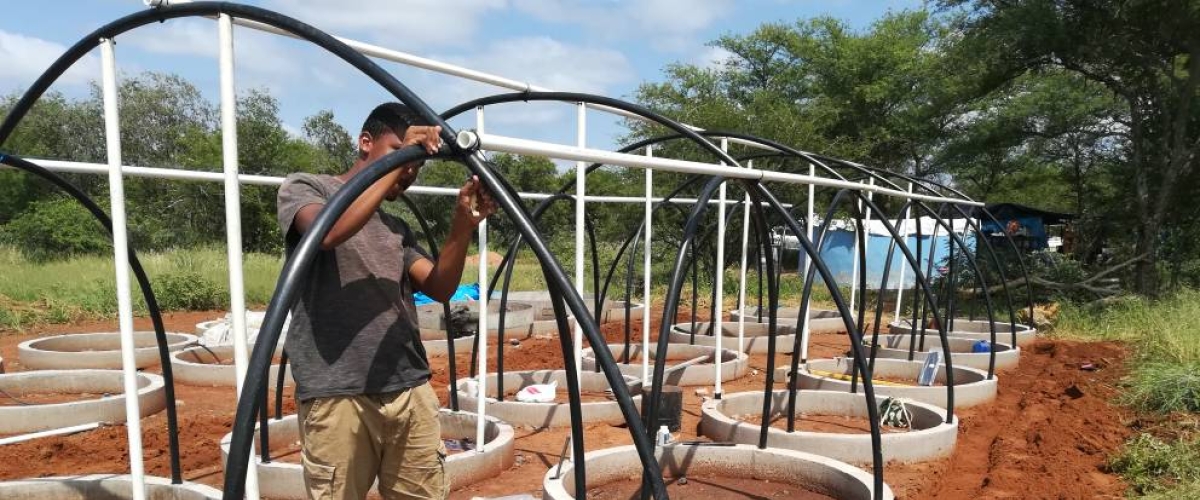
By Keikantse Lesemela
Young entrepreneur, Ali Nwako aims to alleviate food scarcity in Botswana and reduce food import through the application of modern technology and research in vegetable production.
He established a horticulture company, Alidik Holdings in 2015 which specializes in Agricultural technology, research and innovation. He produces vegetables including green peppers, mash rooms, tomatoes and onions based in Kgatleng.
Speaking to the Midweek Sun, he said he ventured into this business because he saw an opportunity in the food scarcity situation in Botswana and other African countries. "I realized that there is a need to produce Agricultural technologies and methods detailed as to include people with special needs (People living with disability, the elderly) in that the technology is simple and with easy automation. Also, our methods and technologies are cost-effective with very low inputs making it inclusive even to impoverished people to venture into farming,” said Nwako.
He started the company from personal funds in 2015 and expanded it through the Youth Development Fund (YDF) in 2017. "I was not only able to secure the start-up loan but got ready assistance in all that we needed." Currently, Botswana market has a lot of potential for agribusiness which is untapped. Dikaelo highlighted that most citizen farmers have adopted technologies that are not specific to Botswana environment."As such, we saw the need to develop technologies and methods which incorporate our inherited indigenous farming knowledge at an affordable price with reduced inputs, not knowledge-intensive and uses readily available natural resources such as animal manure and grass and leaves to mulch and less destructive long term sustainable resource management," he said.
Dikaelo also highlighted that his vision was driven by the environment to develop all products after proper research and interaction with the daily needs of the nation. “The company produces and develops Agricultural products and Technologies best suited for our environment.”
Major customers include Poverty eradication Government Projects, Youth Development Fund (Horticultural Project beneficiaries), Prisons, Hospitals, schools and other organizations which are desirous of attaining food security projects. He said Covid-19 has affected the business negatively as most employees were released due to low production. "We had to let go of most of our employees as it came at a time where we had positioned ourselves for expansion but since most funding was directed to COVID-19 we could not get funding," said Dikaelo.
However, he pointed out that the company is in the right direction as its technologies and methods are efficient for situations like these.
“If COVID had arrived at a time where we were operating at optimal capacity we would actually have even hired more people. Needless to say, COVID has helped us expose the need for food self-reliance which is exactly what we have been advocating for, "
Dikaelo sees the potential for growth in future depending on the availability of funds.” We have also moved towards not only limiting ourselves to the horticultural market products and technologies but are at the point of expanding into manufacturing various Agricultural products, Renewable energy and Pathogen sterilization equipment which the latter is even relevant to assist in the fight against COVID-19.”
The author is a reporter at the Botswana Guardian Newspaper in Gaborone.






